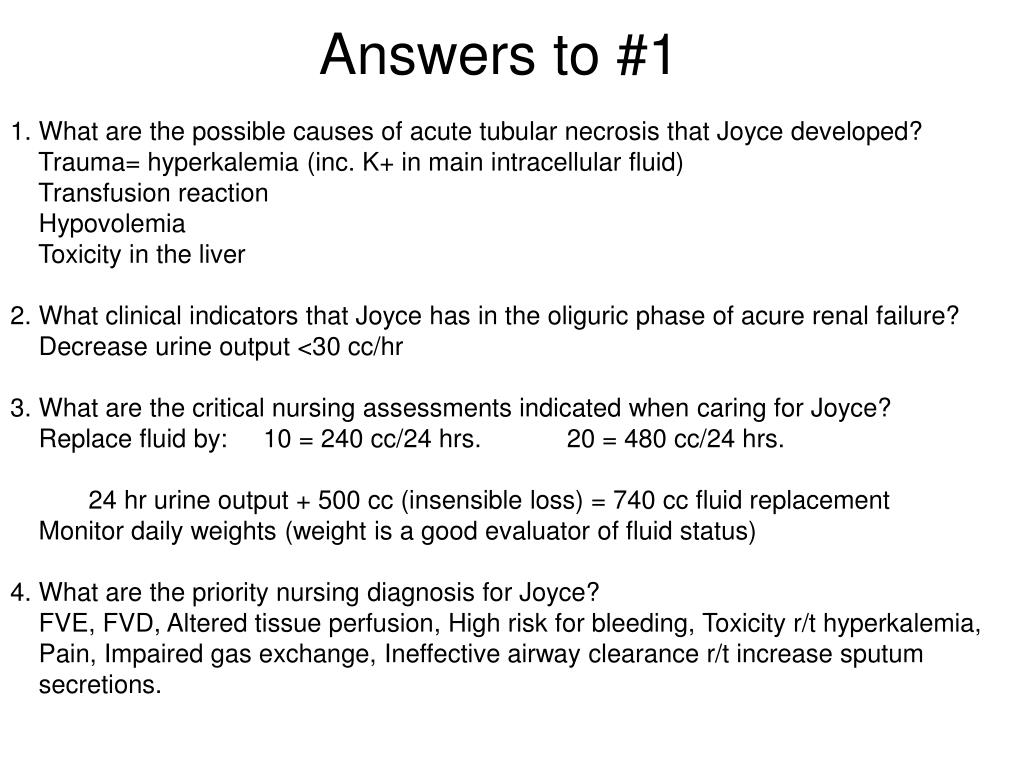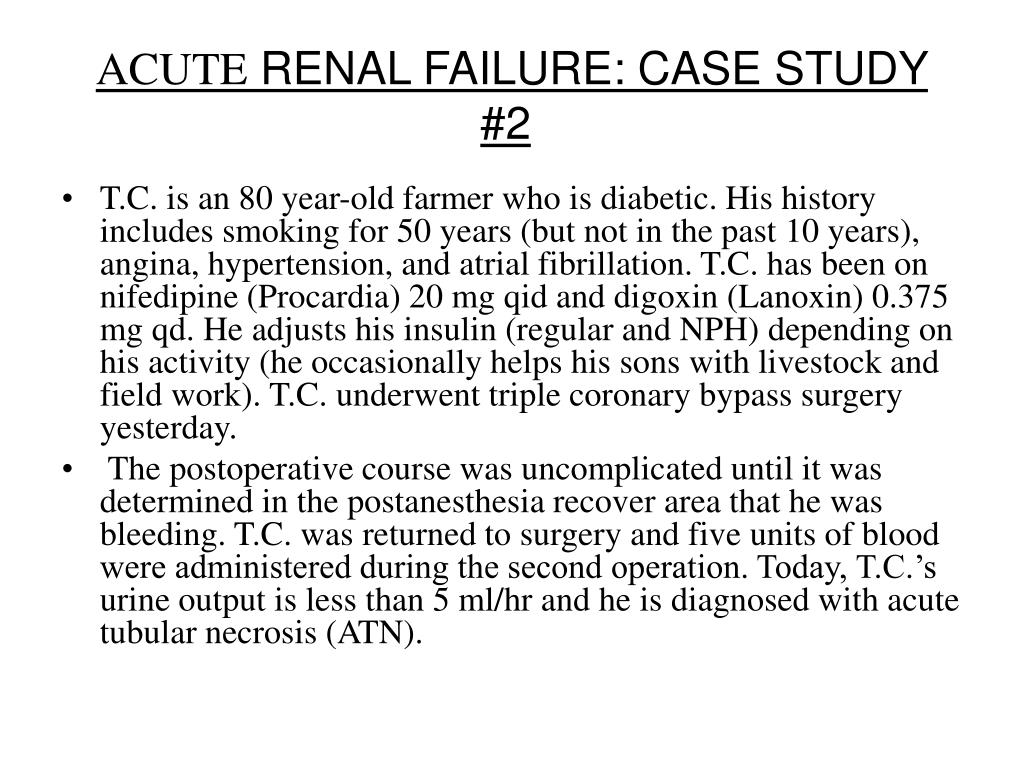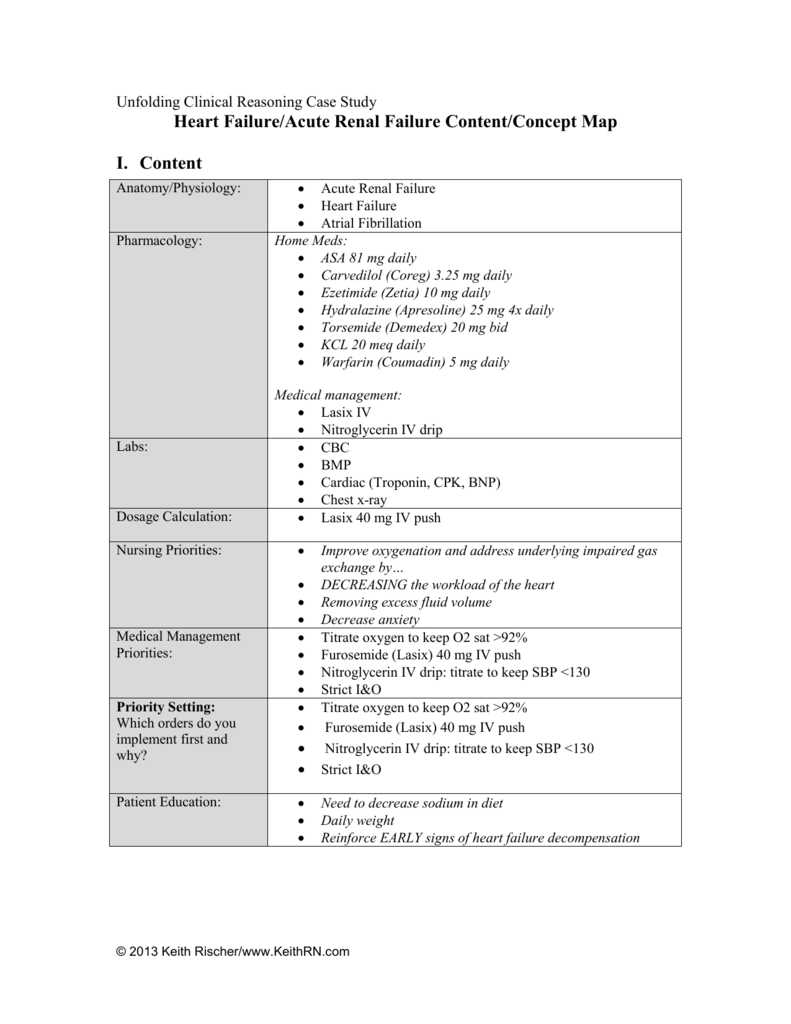Do you look for 'renal failure case study nursing'? All the details can be found on this website.
Table of contents
- Renal failure case study nursing in 2021
- Ckd case study
- Case study renal failure
- Acute renal failure case study pdf
- Case study for renal failure
- Case study 30 acute renal failure
- Chronic renal failure case study pdf
- Acute kidney injury case presentation
Renal failure case study nursing in 2021
 This image demonstrates renal failure case study nursing.
This image demonstrates renal failure case study nursing.
Ckd case study
 This picture demonstrates Ckd case study.
This picture demonstrates Ckd case study.
Case study renal failure
 This picture illustrates Case study renal failure.
This picture illustrates Case study renal failure.
Acute renal failure case study pdf
 This image shows Acute renal failure case study pdf.
This image shows Acute renal failure case study pdf.
Case study for renal failure
 This image shows Case study for renal failure.
This image shows Case study for renal failure.
Case study 30 acute renal failure
 This image illustrates Case study 30 acute renal failure.
This image illustrates Case study 30 acute renal failure.
Chronic renal failure case study pdf
 This image representes Chronic renal failure case study pdf.
This image representes Chronic renal failure case study pdf.
Acute kidney injury case presentation
 This image illustrates Acute kidney injury case presentation.
This image illustrates Acute kidney injury case presentation.
What causes chronic renal failure ( CRF ) or ESRD?
CRF or ESRD may be caused by systemic disease, such as diabetes mellitus; hypertension; chronic glomerulonephritis; pyelonephritis; obstruction of the urinary tract; hereditary lesions, as in polycystic kidney disease; vascular disorders; infections; medications; or toxic agents. ( Jay H. Stein. Internal Medicine.
How to write a case study for chronic renal failure?
The group aims to formulate a comprehensive case study about our chosen client, Sir Xxx Client x, and his diagnosis of Chronic Renal Failure. Upon the accomplishment of this case study, the group also aims to improve our skills, especially in research, attitude, and knowledge.
What are the nursing goals for chronic renal failure?
Main Article: 6 Chronic Renal Failure Nursing Care Plans. The goals for a patient with chronic renal failure include: Maintenance of ideal body weight without excess fluid. Maintenance of adequate nutritional intake. Participation in activity within tolerance. Improve self-esteem. Nursing Priorities. Maintain homeostasis. Prevent complications.
How is chronic renal failure different from acute renal failure?
Unlike acute renal failure with its sudden, reversible failure of kidney function, chronic renal failure slowly gets worse. It most often results from any disease that causes gradual loss of kidney function. It can range from mild dysfunction to severe kidney failure. Progression may continue to end-stage renal disease (ESRD).
Last Update: Oct 2021